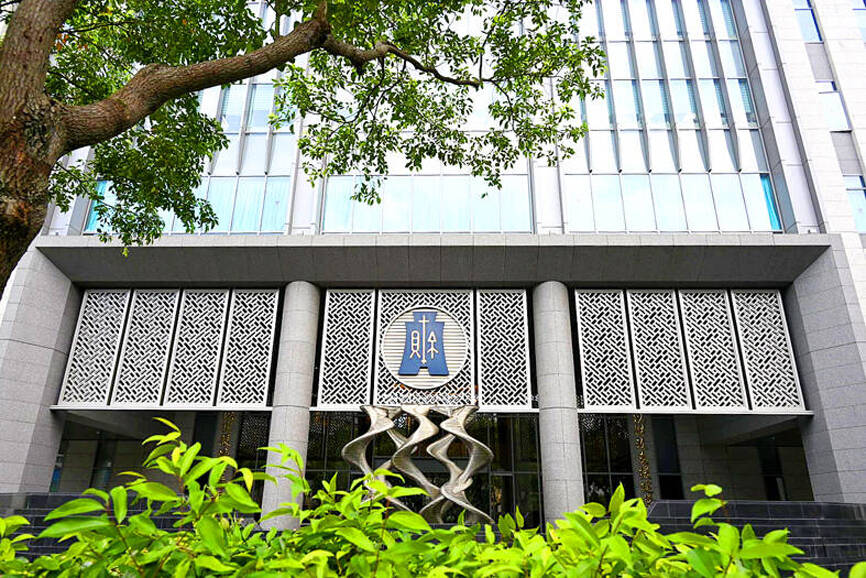The Ministry of Finance is planning to increase the allowance for duty-free alcohol brought into the country by travelers for personal use to 1.5 liters, an official said.
If changed, the new regulations would take effect in the first quarter of next year, they said.
Currently, the allowance for duty-free alcohol for personal use is 1 liter per person, with no limit on the number of bottles and no requirement that it be declared at customs.

Photo: Chang Chia-ming, Taipei Times
Arrivals who exceed the duty-free limit must declare the alcohol, otherwise they risk fines and having the products confiscated at customs.
The ministry plans to increase the duty-free allowance, accounting for regulations in other countries, tax implications and opinions from Taiwan’s alcohol and import industries, the official said.
According to a recent Customs Administration survey, the duty-free allowance for alcohol in Thailand, Indonesia, Hong Kong and Macau is 1 liter per inbound passenger, while in China it is 1.5 liters, and in South Korea and Singapore it is 2 liters.
In Vietnam, the duty-free limit is 1.5 to 3 liters, depending on the alcohol percentage of the product, while Japan allows three bottles of less than 760ml each, which is about 2.28 liters.
In the US and Australia, the duty-free allowance for alcohol is 1 liter and 2.25 liters respectively. The UK allows incoming travelers to bring in a maximum of 42 liters of duty-free beer and 18 liters of still wine, and either 4 liters of spirits and other liquors over 22 percent alcohol or 9 liters of alcoholic drinks with up to 22 percent alcohol (not including beer or still wine).
If Taiwan raises its duty-free limit for alcohol to 1.5 liters, total tariffs, business taxes, and tobacco and alcohol taxes would drop by millions of New Taiwan dollars per year, the ministry said, citing an estimate of 12 million incoming travelers annually.
The official said the ministry had been considering increasing the allowance to 2 liters, but settled on 1.5 liters after careful evaluation of the opinions of associations in domestic alcohol and import industries.

Three Taiwanese airlines have prohibited passengers from packing Bluetooth earbuds and their charger cases in checked luggage. EVA Air and Uni Air said that Bluetooth earbuds and charger cases are categorized as portable electronic devices, which should be switched off if they are placed in checked luggage based on international aviation safety regulations. They must not be in standby or sleep mode. However, as charging would continue when earbuds are placed in the charger cases, which would contravene international aviation regulations, their cases must be carried as hand luggage, they said. Tigerair Taiwan said that earbud charger cases are equipped

Foreign travelers entering Taiwan on a short layover via Taiwan Taoyuan International Airport are receiving NT$600 gift vouchers from yesterday, the Tourism Administration said, adding that it hopes the incentive would boost tourism consumption at the airport. The program, which allows travelers holding non-Taiwan passports who enter the country during a layover of up to 24 hours to claim a voucher, aims to promote attractions at the airport, the agency said in a statement on Friday. To participate, travelers must sign up on the campaign Web site, the agency said. They can then present their passport and boarding pass for their connecting international

UNILATERAL MOVES: Officials have raised concerns that Beijing could try to exert economic control over Kinmen in a key development plan next year The Civil Aviation Administration (CAA) yesterday said that China has so far failed to provide any information about a new airport expected to open next year that is less than 10km from a Taiwanese airport, raising flight safety concerns. Xiamen Xiangan International Airport is only about 3km at its closest point from the islands in Kinmen County — the scene of on-off fighting during the Cold War — and construction work can be seen and heard clearly from the Taiwan side. In a written statement sent to Reuters, the CAA said that airports close to each other need detailed advanced

The age requirement for commercial pilots and airline transport pilots is to be lowered by two years, to 18 and 21 years respectively, to expand the pool of pilots in accordance with international standards, the Ministry of Transportation and Communications announced today. The changes are part of amendments to articles 93, 119 and 121 of the Regulations Governing Licenses and Ratings for Airmen (航空人員檢定給證管理規則). The amendments take into account age requirements for aviation personnel certification in the Convention on International Civil Aviation and EU’s aviation safety regulations, as well as the practical needs of managing aviation personnel licensing, the ministry said. The ministry